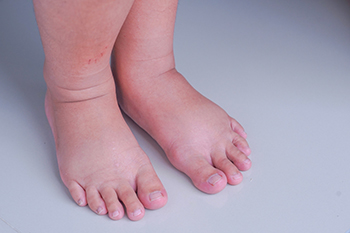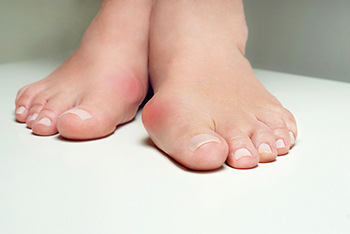August 2023
Recovery Time for a Broken Ankle

Suffering from a broken ankle can disrupt daily life and recreational pursuits for several months. Recovery duration hinges on the severity of the broken ankle. Complex fractures may necessitate surgery, while in simpler cases rest and immobilization may be adequate. Surgical interventions, such as metal supports, may entail longer recovery times. Medical attention is advised if pain persists, worsens, or health issues occur including discharge from surgical wounds, swelling, skin discoloration, or sensory changes. Post-fracture walking aids, such as crutches, canes, or walkers, can help to safeguard the mending bone. Performing home exercises can help to boost ankle strength and mobility. Gradual transitioning to weight-bearing activities is essential in regaining strength. Step-ups on a raised surface and heel raises on a chair can help to facilitate recovery. Other methods that promote recovery can include using mobility aids, avoiding bearing weight prematurely, and maintaining optimal nutrition. To help prevent future ankle injuries, it is beneficial to allow the ankle to heal fully before returning to normal activities. If you would like more information about how a broken ankle can recover, it is suggested that you consult a podiatrist.
Broken ankles need immediate treatment. If you are seeking treatment, contact one of our podiatrists from Bazzi Podiatry. Our doctors can provide the care you need to keep you pain-free and on your feet.
Broken Ankles
A broken ankle is experienced when a person fractures their tibia or fibula in the lower leg and ankle area. Both of these bones are attached at the bottom of the leg and combine to form what we know to be our ankle.
When a physician is referring to a break of the ankle, he or she is usually referring to a break in the area where the tibia and fibula are joined to create our ankle joint. Ankles are more prone to fractures because the ankle is an area that suffers a lot of pressure and stress. There are some obvious signs when a person experiences a fractured ankle, and the following symptoms may be present.
Symptoms of a Fractured Ankle
- Excessive pain when the area is touched or when any pressure is placed on the ankle
- Swelling around the area
- Bruising of the area
- Area appears to be deformed
If you suspect an ankle fracture, it is recommended to seek treatment as soon as possible. The sooner you have your podiatrist diagnose the fracture, the quicker you’ll be on the way towards recovery.
If you have any questions, please feel free to contact one of our offices located in Detroit, West Detroit, Northwest Detroit, Sterling Heights, Hamtramck, Dearborn Heights, Madison Heights, Redford, and Livonia, MI . We offer the newest diagnostic and treatment technologies for all your foot care needs.
Exploring Causes of Swollen Feet

Swollen feet, an uncomfortable and often puzzling issue, can cast a shadow over daily activities. The causes behind this condition can be as diverse as they are unexpected. Prolonged periods of standing or sitting, especially in hot weather, can lead to fluid accumulation in the lower extremities. Pregnancy, with its hormonal shifts and increased pressure on blood vessels, is a common culprit. Health conditions such as heart, kidney, or liver problems can disrupt the body's fluid balance, resulting in swelling. Injuries, infections, and certain medications can also contribute to swelling. Recognizing swollen feet is relatively simple, which is easy to notice as the feet are puffy and tight. Additionally, there can be an indentation in the skin, indicating the feet are swollen. Understanding the underlying triggers empowers individuals to make informed choices, seek medical guidance from a podiatrist, and embrace measures that foster foot health and overall well-being. If you have swollen feet, it is strongly suggested that you speak with a podiatrist who can offer effective treatment methods.
Swollen feet can be a sign of an underlying condition. If you have any concerns, contact one of our podiatrists of Bazzi Podiatry. Our doctors can provide the care you need to keep you pain-free and on your feet.
Swollen feet are a common ailment among pregnant women and people who stand or sit for extended periods. Aging may increase the possibility of swollen feet and patients who are obese often notice when their feet are swelling too. There may be medical reasons why swollen feet occur:
- Phlebitis - A condition that causes the veins to become inflamed and can also cause leg pain.
- Liver disease - This may lead to low blood levels of albumin which is a protein. This can cause fluid in the blood to pass into the tissues and several areas of the body can become swollen.
- Heart failure - When the heart doesn’t pump properly the blood that is normally pumped back to the heart can pool in the veins of the legs causing swollen feet.
- Kidney disease - One of the main functions of the kidneys is releasing excess fluid in the body. This type of condition can make it difficult for the kidneys to function properly, and as a result the feet may become swollen.
- Deep-vein thrombosis (DVT)- This is a serious condition where blood clots form in the veins of the legs. They can block the return of blood from the legs to the heart which may cause the feet to swell. It is important to be treated by a podiatrist if this condition is present.
Swollen feet can also be caused by bone and tendon conditions, including fractures, arthritis, and tendinitis. Additionally, there may be skin and toenail conditions and an infection may cause the feet to swell. Patients who take medicine to treat high blood pressure may be prone to getting swollen feet.
Many patients elevate their feet to help relieve the swelling and this is generally a temporary remedy. When a podiatrist is consulted the reason behind the swelling can be uncovered and subsequently treated.
If you have any questions please feel free to contact one of our offices located in Detroit, West Detroit, Northwest Detroit, Sterling Heights, Hamtramck, Dearborn Heights, Madison Heights, Redford, and Livonia, MI . We offer the newest diagnostic tools and technology to treat your foot and ankle needs.
Foot Care Routines

The feet play a vital role in the functioning of your entire body, housing important nerves that connect to various organs. To ensure they function well, it's essential to keep your feet clean and comfortable. Here are some tips to maintain healthy and happy feet. Soak your feet in warm water mixed with shampoo or liquid soap for 10 minutes. Use a foot file to gently remove calluses and any hardened skin. Then massage your feet with moisturizer or foot cream for nourishment and softness. Remember to allow the skin to absorb the lotion fully before putting on socks. Other suggestions for a foot routine include giving your feet a chance to breathe by walking barefoot while resting at home or at your desk. An important part of foot care is trimming your toenails properly to avoid the discomfort of an ingrown toenail. It is also essential to wear shoes that fit well, leave room for the toes to move freely in, and provide proper cushioning, especially if your job involves standing for long periods. Your feet will thank you by staying healthy and happy, contributing to your overall well being. For any foot problems you may have, it is suggested that you consult a podiatrist.
Everyday foot care is very important to prevent infection and other foot ailments. If you need your feet checked, contact one of our podiatrists from Bazzi Podiatry. Our doctors can provide the care you need to keep you pain-free and on your feet.
Everyday Foot Care
Often, people take care of their bodies, face and hair more so than they do for their feet. But the feet are a very important aspect of our bodies, and one that we should pay more attention to. Without our feet, we would not be able to perform most daily tasks.
It is best to check your feet regularly to make sure there are no new bruises or cuts that you may not have noticed before. For dry feet, moisturizer can easily be a remedy and can be applied as often as necessary to the affected areas. Wearing shoes that fit well can also help you maintain good foot health, as well as making it easier to walk and do daily activities without the stress or pain of ill-fitting shoes, high heels, or even flip flops. Wearing clean socks with closed shoes is important to ensure that sweat and bacteria do not accumulate within the shoe. Clean socks help to prevent Athlete’s foot, fungi problems, bad odors, and can absorb sweat.
If you have any questions please feel free to contact one of our offices located in Detroit, West Detroit, Northwest Detroit, Sterling Heights, Hamtramck, Dearborn Heights, Madison Heights, Redford, and Livonia, MI . We offer the newest diagnostic and treatment technologies for all your foot and ankle needs.
Podiatrists: Specialists in Foot and Ankle Care

Podiatrists are healthcare professionals specializing in the medical care and treatment of the foot and ankles. They undergo extensive education and training, obtaining doctorate degrees from accredited institutions of podiatric medicine. Podiatrists can diagnose and treat a wide range of conditions, including fractures, arthritis, diabetic foot disorders, skin, and nail conditions, and causes of heel pain, like plantar fasciitis. Podiatrists can specialize in general foot conditions, or focus on specific areas like sports medicine, wound care, orthotics, diabetes, pediatrics, geriatrics, neurologic and circulatory foot conditions, and reconstructive surgery. To become a podiatrist, one must complete a bachelor's degree, followed by a Doctor of Podiatric Medicine degree, three years of residency training, national board certification, and state licensing. Specializations can be pursued through fellowship programs and certification exams. Podiatrists are considered physicians, possessing a comprehensive understanding of human anatomy, physiology, and systemic diseases, with their expertise solely focused on foot and ankle disorders. They differ from orthopedists, who treat musculoskeletal issues affecting the entire body. If you have any interest in becoming a podiatrist, it is suggested that you make an appointment to speak to one about their experiences.
If you are dealing with pain in your feet and ankles, you may want to seek help from a podiatrist. Feel free to contact one of our podiatrists from Bazzi Podiatry. Our doctors can provide the care you need to keep you pain-free and on your feet.
What Is a Podiatrist?
A podiatrist is a doctor of podiatric medicine who diagnoses and treats conditions of the foot, ankle, and related structures of the leg. Your podiatrist may specialize in a certain field such as sports medicine, wound care, pediatrics, and diabetic care. Podiatrists have the ability to become board certified through training, clinical experience, and then taking an exam.
What Do Podiatrists Do?
On a daily basis, a podiatrist may perform the following activities:
- Diagnose foot ailments such as ulcers, tumors, fractures, etc.
- Use innovative methods to treat conditions
- Use corrective orthotics, casts, and strappings to correct deformities
- Correct walking patterns and balance
- Provide individual consultations to patients
It is very important that you take care of your feet. It’s easy to take having healthy feet for granted, however foot problems tend to be among the most common health conditions. Podiatrists can help diagnose and treat a variety of feet related conditions, so it is crucial that you visit one if you need assistance.
If you have any questions please feel free to contact one of our offices located in Detroit, West Detroit, Northwest Detroit, Sterling Heights, Hamtramck, Dearborn Heights, Madison Heights, Redford, and Livonia, MI . We offer the newest diagnostic and treatment technologies for all your foot and ankle needs.
Wounds That Don't Heal Need to Be Checked
Facts About Bunions

If you begin to feel pain in the middle joint of your big toe, it is quite possible that you may have a bunion. This deformity is caused by prolonged pressure that compresses the big toe and pushes it toward the smaller toes. This in turn causes the middle joint to push outward, resulting in a bony bump on the side of the foot. Besides a genetic disposition to bunions, wearing shoes that are too tight or too small is a major factor in their development. Side effects from bunions include pain in the joint of the big toe, corns, calluses, and difficulty wearing shoes. In some cases, the movement of the tip of the big toe toward the other toes causes it to overlap onto the second toe. This causes problems finding appropriate footwear and can have a negative effect on posture and gait. Wearing shoes with a wider and roomier toe box is one way to reduce the effects of a bunion. Also, avoiding high-heeled shoes can help. Foot pads are available to relieve some of the pressure, as well as wearing shoes made with mesh or more flexible materials. If you have a bunion, it is suggested that you make an appointment with a podiatrist for an evaluation and recommendations for treatment.
If you are suffering from bunion pain, contact one of our podiatrists of Bazzi Podiatry. Our doctors can provide the care you need to keep you pain-free and on your feet.
What Is a Bunion?
Bunions are painful bony bumps that usually develop on the inside of the foot at the joint of the big toe. As the deformity increases over time, it may become painful to walk and wear shoes. Women are more likely to exacerbate existing bunions since they often wear tight, narrow shoes that shift their toes together. Bunion pain can be relieved by wearing wider shoes with enough room for the toes.
Causes
- Genetics – some people inherit feet that are more prone to bunion development
- Inflammatory Conditions - rheumatoid arthritis and polio may cause bunion development
Symptoms
- Redness and inflammation
- Pain and tenderness
- Callus or corns on the bump
- Restricted motion in the big toe
In order to diagnose your bunion, your podiatrist may ask about your medical history, symptoms, and general health. Your doctor might also order an x-ray to take a closer look at your feet. Nonsurgical treatment options include orthotics, padding, icing, changes in footwear, and medication. If nonsurgical treatments don’t alleviate your bunion pain, surgery may be necessary.
If you have any questions, please feel free to contact one of our offices located in Detroit, West Detroit, Northwest Detroit, Sterling Heights, Hamtramck, Dearborn Heights, Madison Heights, Redford, and Livonia, MI . We offer the newest diagnostic and treatment technologies for all your foot care needs.





